Erik Erikson Biography and Theories: The 8 Developmental Stages, Identity Crisis and Ego Identity
Like Freud and Piaget, Erik Erikson was a constructivist who believed that children developed in stages, with the skills acquired at each level acting as building blocks for the next level.
Since he trained under Sigmund Freud's daughter, Anna, much of Erikson's theories were based on Freudian principles. However, he believed that his predecessors were too limited in their thinking.
Erikson: You Will not Necessarily Remain Stuck in a Certain Stage - There Is Always Hope
According to Erickson, a human being develops from birth to death.
Personality is not carved in stone by age 5 or 12 or even 18. And, he also acknowledged that while childhood experiences can strongly impact adulthood, any problems stemming from these formative years can always be overcome at a later stage.
Being abandoned by a parent at the age of 10 can certainly cause some issues with trust, but that mistrusting 10 year old does not have to become a mistrusting 20 year old. While it may be more difficult to deal with at this stage, it is not impossible.
Basically, Erikson added an element of hope to the popular theories of the time, arguing that no one is ... well, hopeless. As long as there is breath, there is hope.
You can see how this would change everything from research practices, to parenting, to family counselling.
His impact was really quite amazing when you consider the fact that he had no traditional education in the field of psychology.
Erikson didn't even have a college or university degree, yet he opened his own private practice that focused on psychoanalysis and held several teaching positions at prominent schools. That's how respected he was.
Today, he is still regarded as one of the most influential voices in the field of child development and psychology.
Erik Erikson Biography and Life History
Erik Erikson was born in Frankfurt, Germany on June 15, 1902.
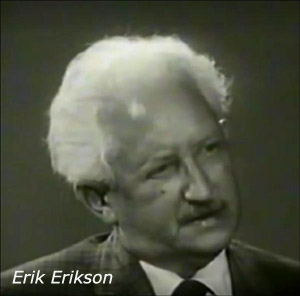 His father left before he was born, although the reasons for this are unclear. His mother raised him alone for a few years until she married Dr. Theodor Homberger.
His father left before he was born, although the reasons for this are unclear. His mother raised him alone for a few years until she married Dr. Theodor Homberger.
Young Erikson was given his stepfather's surname and it wasn't until several years later that he was told that Homberger was not his biological parent.
Since this truth was concealed from him for so long, Erikson became very confused about who he really was and where he fit into the family.
Not only was he unsure of his true psychological identity, but in his mind, the confusion also came from the fact that he didn't even know his "name ". He wasn't really a "Homberger ". He kept the Homberger surname until he was 37, but changed it in 1939 when he became an American citizen, using Homberger as a middle name.
Erikson's Identity Crisis Lead to Academic Interest in Identity Formation
This crisis would eventually lead to his interest in identity formation. His fascination with identity was further sparked by his experiences at school.
At the Jewish school he was teased because of his blonde hair, blue-eyed Nordic appearance, but at the public school, he was rejected because of his Jewish connections.
He felt like he didn't truly belong anywhere.
When he graduated from highschool, he spent some time travelling around Europe, observing people and recording his experiences in a journal.
Eventually, he returned to Germany and enrolled in Art school, but this did not last very long before he resumed his wandering lifestyle.
In 1927, at the age of 25, Erikson entered the Vienna Psychoanalytic Institute where he became a patient of Anna Freud. During this time, he also received his training in Psychoanalysis and earned a certificate from the Vienna Psychoanalytic Society. In 1930, he married his wife, Joan, and they went on to have three children.
In 1933, Erikson and his family moved to the United States where he set up Boston's first clinic specializing in child analysis. He also accepted a position at the prestigious Harvard Medical School.
A Broad Field of Research Earned Erikson Academic Respect
In 1936, he took a job a Yale University, and went on to study the child rearing practices of the Sioux Indians of South Dakota and the Yurok Indians of Northern California. It was during this time that he began to notice the huge impact culture can have on human development.
He observed that when tribes had been uprooted and separated from their traditions they demonstrated a lack of self-image, as well as both personal and cultural identity crises.
His broad scope of research was one of the reasons Erikson was so highly respected among his colleagues. He studied combat crises (currently called PTSD) in WWII soldiers, he looked at the child rearing practices among Indian tribes, he observed the play and interactions of both normal and disturbed children, and he listened to adolescents who were experiencing identity crises.
He was also very concerned about social change and focused much of his work on the major issues of his day such as changing gender roles, racial tensions, delinquency, and the definition of family.
Erikson held many positions at reputable institutions throughout his lifetime including Yale, Harvard, Berkely, the Austen Riggs Center, and the Menninger Foundation.
Erik Erikson died on May 12, 1994, but his developmental theory can still be seen in many of today's philosophies and parenting approaches.
Erik Erikson's Theories and Contributions
Erik Erikson's broad scope of interest and research gave credibility to his theories and ideas.
Erikson Was More of a Theory Expander Than Theory Inventor
Observing both the similarities and differences between cultures, environments, and biological factors, allowed him to view human development from a different perspective than many of his famous predecessors.
But, he was also able to recognize the valid points in other theories, and has often been credited for building or expanding on existing schools of thought.
For example, while Erikson did not develop play therapy, his application of this concept is the one often used by many child psychologists as both a diagnostic and therapeutic tool.
- "You see a child play, and it is so close to seeing an artist paint, for in play a child says things without uttering a word. You can see how he solves his problems. You can also see what's wrong. Young children, especially, have enormous creativity, and whatever is in them rises to the surface in free play."
So, while Erikson blends original thought with the ideas of others, his contributions to the field of psychology and parenting have been invaluable. Some of his most widely known contributions include:
Expansion of Freud's Theories
Erikson used Freud's theories as a starting point, but he continued where Freud left off, claiming that the stages of development do not end when a child reaches adulthood.
While a lot of Freud's basic principles can be seen in Erikson's work, Erikson added a humanistic aspect that helped create a whole new area of research.
- Personality development is a life time project: Freud claimed that personality was firmly shaped by the age of five; however, Erikson believed that a person continues to develop throughout his entire life, and personality can be changed or shaped even in later adulthood.
- Perhaps one of the most prominent changes that Erikson introduced was the idea of an ego identity.
According to Freud, the ego was simply a servant to the id. The id is the part of your personality that you are born with - it demands its own way and only seeks its own satisfaction with no regard to the needs and wants of others.
It is completely biological and is necessary for survival. It is the job of the ego to meet the needs of the id while also considering external realities and socially accepted behavior.
But, Erikson believed that the ego is not simply a mediator, and it is not solely controlled or shaped by biological factors. Social and cultural environments have a huge impact on the formation of personality.
This belief led him to develop the concept of ego identity - or the sense of oneself as a separate and distinct being. Your ego identity is how you identify or define yourself. It is who you think or believe you are.
So in other words, your ego is not subservient to your id and does not exist simply to keep the id under control. Your ego actually develops on its own and determines what Erikson feels is the most important aspect of personality - your identity. - The third alteration that Erikson made to Freud's theory was the addition of social factors. We are determined just as much by nurture as nature.
Freud focused on the psychosexual aspects of development - or the biological instincts and "drives" that shape personality.
However, Erikson felt that this viewpoint was very limited. While studying both the Sioux and Yurok Indians, he observed that cultural, historical, and social influences have a great impact on personality development.
While Freud believed everything was "Nature", Erikson broadened his scope to include "Nurture". He agreed that the stages of development are determined by genetic (or biological) factors; however, social forces are equally - if not more - important.
In other words, nature decides the sequence of stages but it is nurture that influences the way each stage is realized or managed. Nature sets the limits, but nurture plays a part in determining the success of development within those limits.
Unlike Freud, Erikson believed that people are not controlled entirely by biological forces. And, he took this one step further to say that the biological factors present in childhood are not the only factors that influence adulthood.
Coining the Term "Identity Crisis"
"Identity Crisis" has almost become a pop culture term, especially among adolescents.
But, according to Erik Erikson, this is not just an excuse for refusing to get a job or deciding on a career. It is a very real state that is encountered when someone begins to question who they are.
He first recognized it in himself after discovering that the man he thought was his father was not actually his biological parent. He also encountered further conflict in school because he had a Jewish name and heritage but a Nordic appearance.
Erikson Introduces the Idea of Parents' Important Role in a Child's Identity Formation
Erikson believed that the relationship between parents and children will help determine whether or not children successfully form their identity or suffer role confusion.
If a child develops trust, initiative, or competence, then he will be equipped to build a positive self-image and a strong sense of identity.
A parent who unconditionally accepts their child for who he is and encourages him to explore his strengths and interests will facilitate ego identity. A parent who forces societal or cultural roles on their child, is dishonest or unreliable, or makes a child feel rejected and inadequate, will cause feelings of confusion and insecurity. This can lead to what Erikson calls an identity crisis.
It is important to note that while adolescence is the most common period for an identity crisis to arise, it can also appear in other stages.
Erikson also states that how people deal with this crisis will determine how well they handle the challenge.
Erikson's Lifespan Theory of Personality Development in 8 Stages
While Freud focused on Psychosexual (or biologically driven) stages, Erikson divided personality development into 8 Psychosocial stages which focus more on social influences than biological factors.
Erikson's first four stages are quite similar to Freud's developmental stages (Oral, Anal, Phallic, and Latency), but he continues where Freud stopped, covering the entire lifespan.
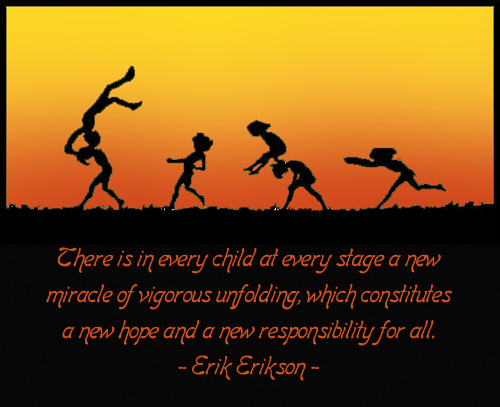
In Each Stage, the Individual Will Encounter a Crisis
Erik Erikson suggests that these conflicts could already exist at birth as a predisposition, but they remain inactive until two things happen:
- The person reaches the corresponding stage of development. A child in the first stage of development will not face a third stage conflict; however, conflicts from previous stages can re-appear in later stages.
- The environment places certain demands on the person which requires the use of skills developed at particular stages. For example, a child will not have to deal with autonomy until he reaches an age where his environment pushes him to become more independent.
According to Erikson's theory, each conflict is called a crisis, and the individual must find a way to resolve each crisis before they can move on to the next stage.
Resolution involves a change in attitude, perspective, and personality. But, because it also means a time of vulnerability, there is the possibility that an identity crisis could result.
Erikson States That There Are Two Ways to Resolve Each Crisis - Maladaptive (Negative) or Adaptive (Positive)
A positive resolution is needed for normal development; however, he believes that both the adaptive and maladaptive ways of coping must become part of the "ego identity" (or the person's perspective, attitude, thoughts, and world view).
For example, at the "trust vs mistrust" stage, a healthy outcome would be one that consists primarily of trust. However, a little bit of mistrust must also be included or the individual will be gullible and easily deceived.
Only when the crisis is resolved with the right balance of both coping methods is the person able to move onto the next stage successfully. Maladaptive resolutions will hinder development and cause problems at subsequent stages.
During the first four stages, a child's parents and primary caregivers play an important role in healthy development.
Below you'll find a short 4 minute video that quickly explains Erikson's 8 development stages.
1) Oral-Sensory Stage (Birth - 1 year)
- Conflict: Trust vs Mistrust
At this stage, the infant is completely dependant on someone else to meet his needs.
Although Erikson agrees that a lot of development in the oral-sensory stage is biologically driven, there is also a large social aspect.
The most important relationship in a baby's life is based on the interaction between himself and his mother (or primary caregiver) and this relationship will greatly impact how a child will later see himself and the world around him.
If a mother is highly responsive and consistently meets the child's need, he will develop trust in others, and society as a whole. However, if the mother is neglectful and rejecting, the child will develop an attitude of mistrust. He will be suspicious, fearful, withdrawn, and unable to form strong relationships.
Although the foundation for trust vs mistrust is established at this stage, it can still become an issue at later stages. For example, if a teenager loses a parent they may then have to deal with mistrust, even though their previous attitude was one of trust.
Similarly, a child who was abandoned at birth or spent several years in a foster care system can later overcome a feeling of distrust if placed in a healthy family that helps him construct an attitude of trust.
Erik Erikson believed that there are what he calls "basic strengths" that will grow from a positive resolution at each stage.
The Goal of the Oral-Sensory Stage: Hope
Those who successfully come through the oral-sensory stage will develop HOPE which grows from a sense of trust. It is the belief that things will work out despite setbacks.
2) Muscular-Anal Stage (1-4 Years)
- Conflict: Autonomy vs Doubt and Shame
A child experiences a lot of physical changes during the muscular-anal stage and develops the ability to do more things for himself. He learns to walk, talk, climb, and communicate more effectively.
For the first time, he is able to make some of his own choices - what toy to play with, when to move from one place to another, when to hug, etc. Deciding what to eat first at dinner - the potato or the broccoli - is a major step for a young child experimenting with independence.
Although he is still dependent on his parents, he is also beginning to see himself as a separate entity - and one that has some control or decision making power.
If a parent allows a child to explore his capabilities and move at his own pace, he will develop a sense of autonomy.
However, if a parent does not allow a child to exercise his will (within reason of course) but tries to force training and reacts in anger when he does not meet expectations, then Erikson believes that a sense of shame about his relationships with others and a sense of doubt about himself will result. He will feel like he can't "measure up" and will try to become who he is expected to be rather than developing an honest identity.
The Goal of the Muscular-Anal Stage: Will
Those who come through the muscular-anal stage with a positive resolution will develop the basic strength of WILL which grows from autonomy. This is the ability to use both freedom of choice and self-control.
3) Locomotor-Genital Stage (3-5 Years)
- Conflict: Initiative vs Guilt
As the child is developing both physically and mentally, he wants to do more on his own and his initiative to do what he wants is quite strong.
This is also the stage where the "Oedipal Complex" makes an appearance. A child will desire, or want to possess, the parent of the opposite sex and feel a sense of competition with the parent of the same sex.
How parents react to this phenomenon will greatly impact how successfully a child is able to resolve the conflict presented at this stage of development. If they punish their child for these fantasies or inhibit his new sense of initiative in pursuing desires, the child will develop a sense of guilt which will affect his ability his be self-initiated in the future.
With regard to the Oedipal Complex, obviously the child cannot win, but a loving parent will guide him through this time, explaining why this desire is not possible. If he is encouraged to channel his initiative toward more acceptable and appropriate goals, he will then develop a sense of responsibility and self-control.
It is important to note that if the child did not develop trust, or if he is battling with shame and doubt, then he will probably not be able to receive positive instruction and will likely feel guilt or question his desires (goals). As you can see, previous stages are the foundation for current ones.
The Goal of the Locomotor-Genital Stage: Purpose
The basic strength of PURPOSE is developed from initiative and gives a person a sense of courage and determination to pursue his dreams.
4) Latency Stage (6-11 Years)
- Conflict: Industry vs Inferiority
At this stage, a child's world is expanded. He usually begins school and is exposed to many other influences outside the home.
Erikson stresses that a child's experiences at home, both in the current stage and previous ones, will greatly affect how he is able to handle the new challenges encountered in changing environments.
At school, the child is given assignments and will learn to be industrious - both to gain approval and to achieve the pleasure of completing a task. He will begin to develop "big people" skills and will try to mimic the adults in his life.
The feedback of both parents and teachers will determine how a child sees the development of his skills. If he is criticized or ridiculed, he will begin to see himself as inadequate or inferior. If his efforts are encouraged and reinforced, he will feel competent. This positive attitude allows him to become more industrious ... which will encourage him to use the initiative that was developed in the previous stage.
The Goal of the Latency Stage: Competence
Those who achieve a positive resolution will develop COMPETENCE which results from industry, and encourages individuals to complete tasks and pursue excellence.
/p>
CComments on the First Four Stages
The completion of these first four stages marks a significant change in Erikson's theory.
To this point, child development is more dependent on others - how a parent or teacher reacts or responds has a large impact on the outcome of each stage.
The child has very little control over his environment because he can't choose where, or with whom, he lives. Even though he has some decision making freedom, he is still subjected to rules imposed by others.
The last four stages are different in that the individual has increasingly more control over the outcome. In fact, they can often deliberately deal with issues from previous stages. Marriage, college, career, finances - these things are now within his control.
It is important to note that choices made in the last four stages are strongly governed by characteristics developed in the previous four stages.
5) Adolescence (12-18 Years)
- Conflict: Identity vs Role Confusion
According to Erik Erikson, this is the where all the previous stages meet to help the adolescent develop identity.
Everything a child has learned about himself, how he thinks others see him, his sense of trust (or mistrust), autonomy (or doubt and shame, initiative (or guilt), and industry (or inferiority), all work together to help him define himself.
He begins to form a picture of himself, and sometimes he must experiment with different ideologies to find his true beliefs and values.
A child who is able to develop a strong sense of identity will be able to face adulthood. However, a child who struggles with defining himself will experience identity crisis or role confusion. He won't know who he is or where he belongs, and he will question all he has learned or previously believed to be true. This can lead to withdrawal, depression, and lack of direction.
The Goal of the Adolescence Stage: Fidelity
The successful completion of this stage will bring FIDELITY which is developed from identity and gives adults the ability to be loyal, sincere, and pursue authentic relationships.
6) Young Adulthood (18-35 Years)
- Conflict: Intimacy vs Isolation
Marriage or committed relationships usually involves the merging of identities. Intimacy is the ability to blend two identities without losing either one. People who are unable to do this experience isolation.
It is important to note that intimacy is not possible unless the person has developed a strong ego identity in the previous stage.
The Goal of the Young Adulthood Stage: Love
LOVE is derived from intimacy and, according to Erikson, is the most important strength. Love comes from the joining together of two identities and the ability of a person to devote themselves to another without a threat to their own identity.
7) Adulthood (35-55 Years)
- Conflict: Generativity vs Stagnation
Individuals in this stage are concerned with helping the younger generation achieve their dreams.
This stage is more about the parent than the child, because the parent gains satisfaction from instilling their knowledge in their children and guiding them to become happy, healthy adults.
Even if they do not have children, or their children are grown, people in this stage need to feel like they are making a difference. Those who do not, will feel a sense of stagnation.
The Goal of the Adulthood Stage: Care
From this stage emerges the basic strength of CARE which comes from generativity. This is the desire to invest oneself in the teaching and guiding of others.
8) Maturity (55+ Years)
- Conflict: Integrity vs Despair
This stage is a time of reflection. Individuals look back and evaluate their lives. If they feel a sense of satisfaction and fulfillment and believe that they have resolved conflicts well, then they will possess what Erikson calls ego integrity.
If they are filled with regrets, anger, and emptiness, then they will develop a sense of despair. These people are bitter, angry, depressed, or spend all their time wondering about the "what ifs".
The Goal of the Maturity Stage: Wisdom
This stage results in the basic strength of WISDOM which grows from ego integrity. Wisdom uses a lifetime of learning to impart heritage and sage advice to the next generation.
Academic Criticism of Erikson' Theories
Erik Erikson is credited for many advancements in child psychology practices; however, not everyone was willing to accept his theories at face value. While he recognized weaknesses in Freud's principles, many say that he failed to notice the "holes" in his own ideas.
1) If It's a Lifespan Theory Why Is More Attention Paid to the Childhood Stages?
Perhaps the greatest criticism is that he focused largely on childhood and early life.
If he proposed a lifespan theory, why are his later stages so undeveloped and lacking detail?
It is true that the bulk of his research and observation involved children, but many feel that if he was going to stress a theory that encompassed birth to death, he should have given fair emphasis to all stages.
2) Do Stages Really Need to Be Resolved Before Entering a New Stage?
Still others question whether or not the stages must be sequential. Does one stage really need to be completed before another can start?
Erikson himself said that many of his phases are defined based on the time when the conflict is more prominent, but that each stage can carry over to other stages. So, did he contradict himself?
If someone can face the issue of trust vs mistrust again in adulthood, is it not possible that he can develop industry without developing initiative? T
here are a lot of people who will work hard to complete tasks that are given to them - and even take pride in their work - but do not show any initiative to employ their own ideas.
33) Is the Difference Between Men and Women Really Based on the (Non-) Presence of a Penis?
Erikson is also criticized for "man centered" philosophies. And, he makes some very unsupported claims. The idea that the personality differences between men and women are based on the presence - or lack of - a penis is rather simplistic.
Some experts even question whether many of Erikson's findings are applicable to women, particularly when it comes to identity formation.
p>
Books and Publication by Erik Erikson
Major Works
ChChildhood and Society (1950)
This book is basically a summary of Erikson's theories on personality development.
He outlines his eight stages of development, discusses identity crisis and the formation of ego identity, and shows how childhood experiences impact adulthood. He also discusses his study of the American Indian tribes, which led to the observation that society plays a large role in development.
Identity: Youth and Crisis (1968)
This is a collection of essays on various topics including identity crisis, changing gender roles, social phenomena, identity formation, and the psychology of adolescents.
Identity and Responsibility (1972)
This is a much more scientific publication and includes six essays covering topics such psychoanalytic ethics, clinical evidence, and origins of ethics.
This book also discusses the role of culture on identity, psychology and history, and the link between identity and society as a whole.
Ghandi's Truth
This book outlines the life of Ghandi using psychoanalytic theories.
Erikson shows how Ghandi's childhood and experiences made him the man he became, and how his background led him to a philosophy of non-violence. Erikson also uses Ghandi's life to show how groups of people have national identities and how things such as war and conflict can affect these identities.
This book was awarded a Pulitzer Prize and a US National Book Award in the category of Philosophy and Religion.
Young Man Luther: A Study of Psychoanalysis and History
This was his first psychobiography of a famous person. He talks about the conflicts that Luther faced which eventually led to an identity crisis. He shows how these issues were resolved - how Luther worked through them and came to an adaptive resolution.
These books are an interesting read and show how psychoanalytic theory can be traced through the lives of very famous and influential people. Erikson created a lot of support for his ideas because he was able to show how they existed and functioned in reality.
Your Positive Parenting Ally,
Birgitte

Want to stay in touch and get the latest news?
Sign up
for my free newsletter
Parent Coaching
- For Inner Peace, Clarity and a Deeper Connection to Your Child
 Being a parent can feel like a double-edged sword. Life with kids may feel like the greatest gift you have ever received, while at the same being hugely challenging, often leaving you confused, stressed and overwhelmed.
Being a parent can feel like a double-edged sword. Life with kids may feel like the greatest gift you have ever received, while at the same being hugely challenging, often leaving you confused, stressed and overwhelmed.
When we feel like this, we've lost touch with ourselves. We can't hear our own inner voice, and it's difficult to know what is 'right' for us and how to act.
I offer in-depth parent coaching to help you regain your balance and get back in touch with yourself. From a place of inner peace and clarity, your will find your own answers which will help you reconnect with your child from a place of unconditional love and acceptance.
Read more about my parent coaching here.
Where Would You Like to Go Next?
Famous Parenting Experts Overview
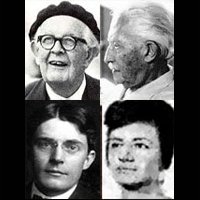 Famous Parenting Experts and Their Parenting Styles Theories: Humanism vs. Behaviorism. |
Parenting Experts Related to HUMANISTIC Parenting Styles (Founders, Refiners, Supporters or 'Coiners')
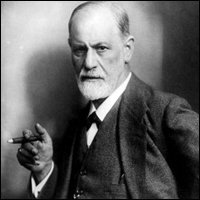 Sigmund Freud the Controversial Pioneer of Psychology: The Famous Psychosexual Stages of Child Development. |
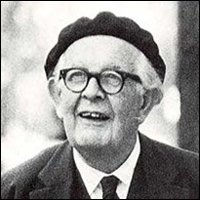 Jean Piaget Biography, Theories and Books: The Earliest Torch Bearer of Humanism. |
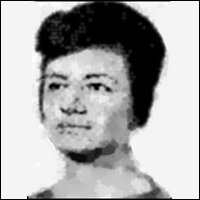 Diana Baumrind Spot-on: Biography, 3 Parenting Styles and Criticism (Spanking). |
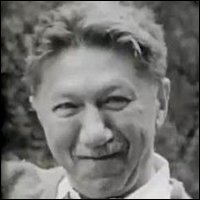 Abraham Maslow Biography: The Father of Humanistic Psychology and Self Actualization Theory. |
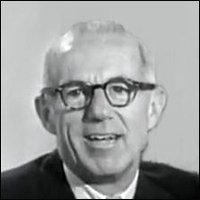 Dr. Benjamin Spock Biography, Theories and Books: The Controversial Forefather of Intuitive Parenting. |
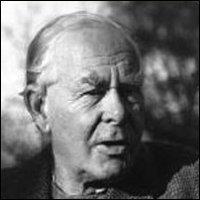 A Biography of John Bowlby: The Father of Attachment Theory. |
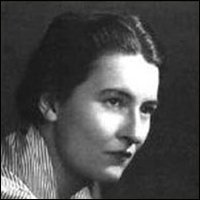 An Intriguing Mary Ainsworth Biography: The Refiner of Attachment Theory. |
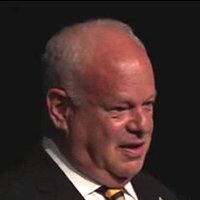 Martin Seligman: The Critic of Traditional Psychology and Father of Positive Psychology. |
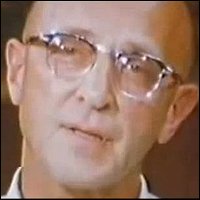 Carl Rogers Biography, Theories and Books: The Founder of Humanistic Psychology. |
 Alfie Kohn Biography, Theories and Books: The Father of Unconditional Parenting. |
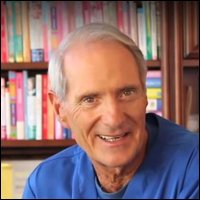 Deep Insights into the Essence of Dr Sears' Attachment Parenting - Along with a Fascinating Historical View on the Slow Rising Consciousness of Attachment Parenting. |
Parenting Experts Related to BEHAVIORIST Parenting Styles (Founders, Refiners, Supporters or 'Coiners')
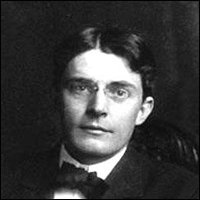 John B Watson Biography, Theories and Books: The Father of Behaviorism. |
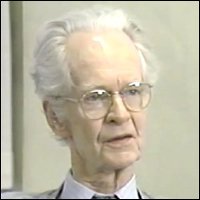 B. F. Skinner Biography, Theories and Books: Father of Radical Behavorism. |
 Amy Chua Biography and Theories: Tiger Mother's 9 Parenting Principles. |
Back to the top of this page about Erik Erikson Biography and Theories: The 8 Developmental Stages, Identity Crisis and Ego Identity
Go to the Positive Parenting Ally Homepagestrong







